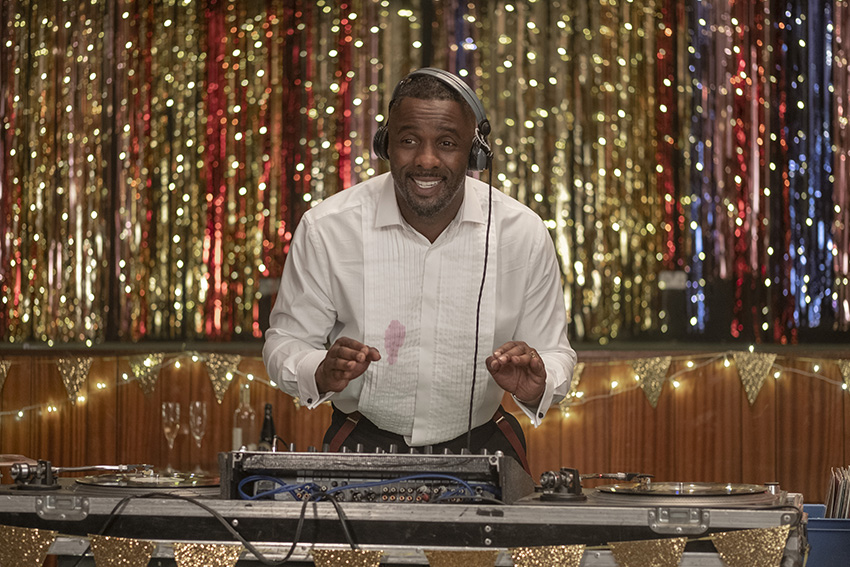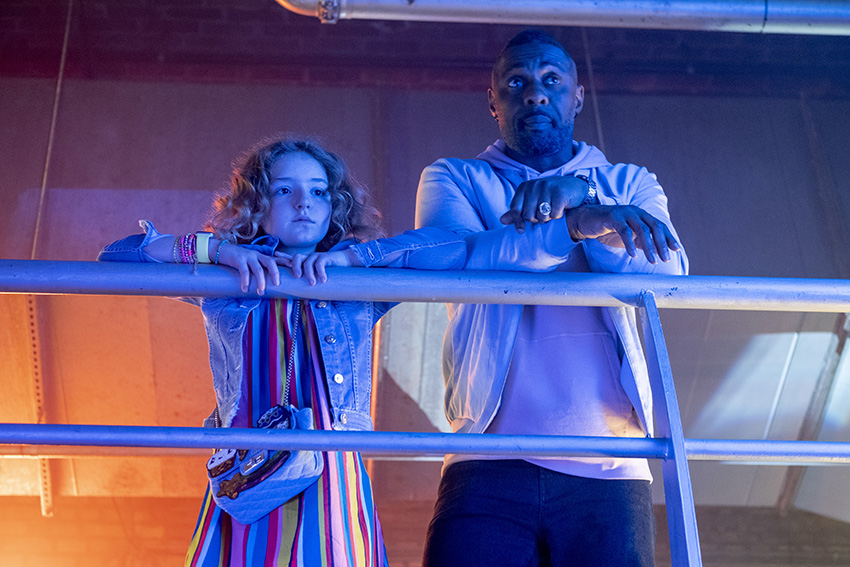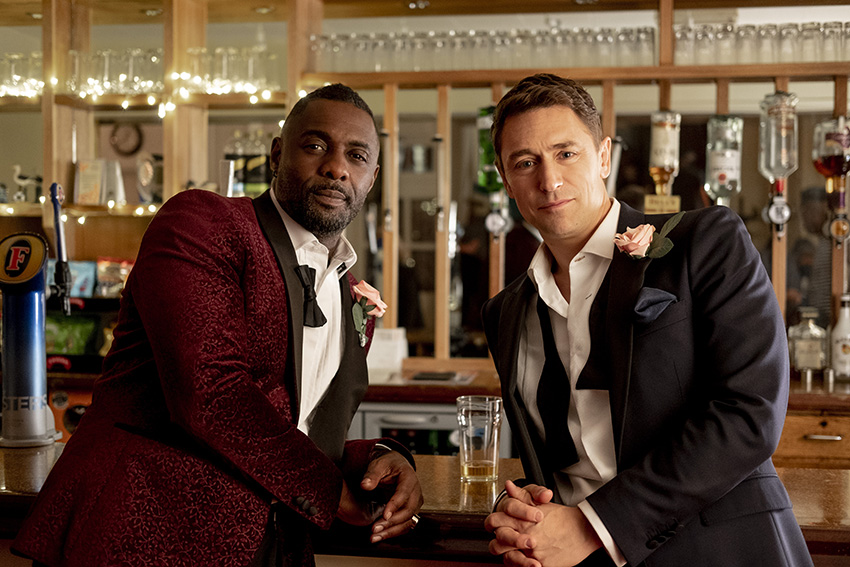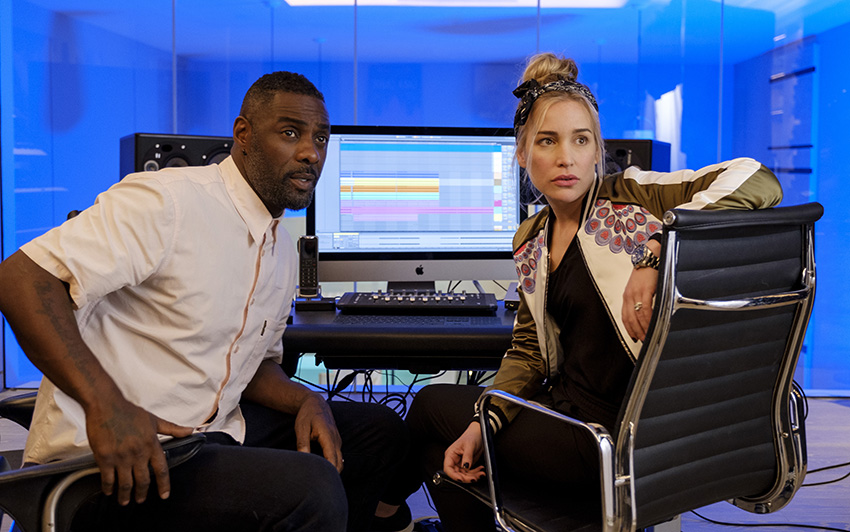I am of the cemented opinion that Idris Elba can do no wrong. The man is a dramatic leviathan having made his name as Luther, Heimdall and Nelson Mandela. For a while now, Elba has expressed a desire to take on more comedic work. Combine this with Elba being an established DJ and singer and his new Netflix show has the potential to be something substantial. In a way, Turn Up Charlie proved to be a suitable vehicle to display’s Elba’s talent. The downside is pretty much everything else.

The premise to Turn Up Charlie is lifted straight out of the 90s, around the same time that the aforementioned lead character’s music was on everyone’s playlist. Charlie, played by Elba, is now a washed-out DJ who struggles to even land wedding gigs. This, to the dissatisfaction of his Aunt with whom he boards, while his parents are fed the lie that his career is still flourishing. While working an event, he runs into his childhood friend and Hollywood star David (J.J. Felid), who has moved back to London with his wife Sara (Piper Perabo) to let his daughter Gabrielle (Frankie Hervey) experience a “normal” childhood. Impressed by Charlie’s initial interactions with Gabs, David and Sara offer Charlie the job as her nanny, a position which has a high employee turnover thanks to the child’s brattish behavior. Charlie accepts, but not before realizing that Sara, who just so happens to be a world-renowned DJ and mixer, may be the person to help his label and get him back to club stardom.

It has been a while since I have come across a plot this trite. Turn Up Charlie may boast a budget and production values that eclipse the sitcoms of yesteryear, but the premise comes with immediate presumptions. Specifically, the kind of shenanigans that Charlie and Gabs get up to, and what kind of emotional journey that they will embark on. It is cliché as it is predictable. There is a bigger problem, though. One could forgive the plot if it served the purpose of being a vessel for something of substance. Comedy, characters, emotional payoff, etc. Throughout the eight-episode run, I saw snippets of all of these elements, but nothing that was satisfactorily developed.
What keeps this record turning is Elba. The show is clearly his passion project and it sits him in a very comfortable role. He is very much being himself and it works thanks to a trademark level of charisma. You have to sit through the unavoidable scenes when he is a complete jerk to everyone around him, but

However the same cannot be said for the relationship that is at the show’s forefront. While it may be entertaining to watch Elba go against typecast and play the role of a spoilt brat’s nanny, this spoilt brat is super unlikeable. Gabrielle is written to act older than she is. A decision that may be beneficial to the show’s humour, but then that attitude has to be reflected in her behaviour. The juxtaposition between her acting her true age and hanging out with the adults is not pulled off well. You can’t distinguish that properly with something as simple as one panic attack. On top of this, Gabs is a terrible person. She sprouts some shocking remarks early on and the show does not give her enough time to redeem herself in the eyes of both Charlie and the audience. I did not like her in episode one, and I still didn’t like her by episode eight. Actress Frankie Hervey is doing exactly what the script is asking her to do though; she is not at fault for writing that cannot effectively pace its emotions.
Turn Up Charlie is weirdly paced in general. We go from London to Ibiza at the drop of a beat and the narrative suffers from several tangents that go nowhere. David and Sara’s marriage does not add anything and David’s side plot of wanting to spend more time with his family is superfluous. Charlie’s attempts to return to the strobe lights is rocky and is not backed up by important facts or events. It just kind of happens. Same can be said for the show’s climax. It just… ends, with little conclusion to the characters and what they are going through. And I do not say this while asking questions which are potentially and intentionally only going to be answered in a second season. I am talking about an ending that wraps up at an appropriate junction for those it concerns. It is very unsatisfying.

The production is spotty here and there. Matt Lipsey (Little Britain; Jekyll) and Tristam Shapeero (Community; Unbreakable Kimmy Schmidt) serve as directors and the realist shots of trendsetting London and sun-soaked beach clubs are adequately accounted for. Props to the sound mixing, a crucial peripheral to this story, as well as the Charlie’s one hit, Sweet Life (it’s quite catchy). But there are moments when the parties look too much like stock footage and no effort is made to up-play the visuals when our leads are on the stage. An element that should be given greater emphasis.
If Turn Up Charlie is to be watched, it will be for Charlie himself. Elba’s desire to take on more comedic work is apparent and he demonstrates his capability on delivering laughs. But you need a good show to go with him. And for all the laid-back performances and appealing visuals that are on display, this isn’t it.
Last Updated: March 6, 2019
| Turn Up Charlie | |
|
Turn Up Charlie puts Idris Elba up on a stage, and we enjoy him in a light-hearted, inconsequential ride through the dance club scene. But you feel ripped off when the party's over, and there's some unpleasant drama waiting for you outside.
|
/10
|
|---|---|





















Admiral Chief
March 6, 2019 at 15:47
Idris is a cool guy
HvR
March 6, 2019 at 15:41
So it is more a turn down for what
https://media.giphy.com/media/wUPaB0Kk0yzew/giphy.gif